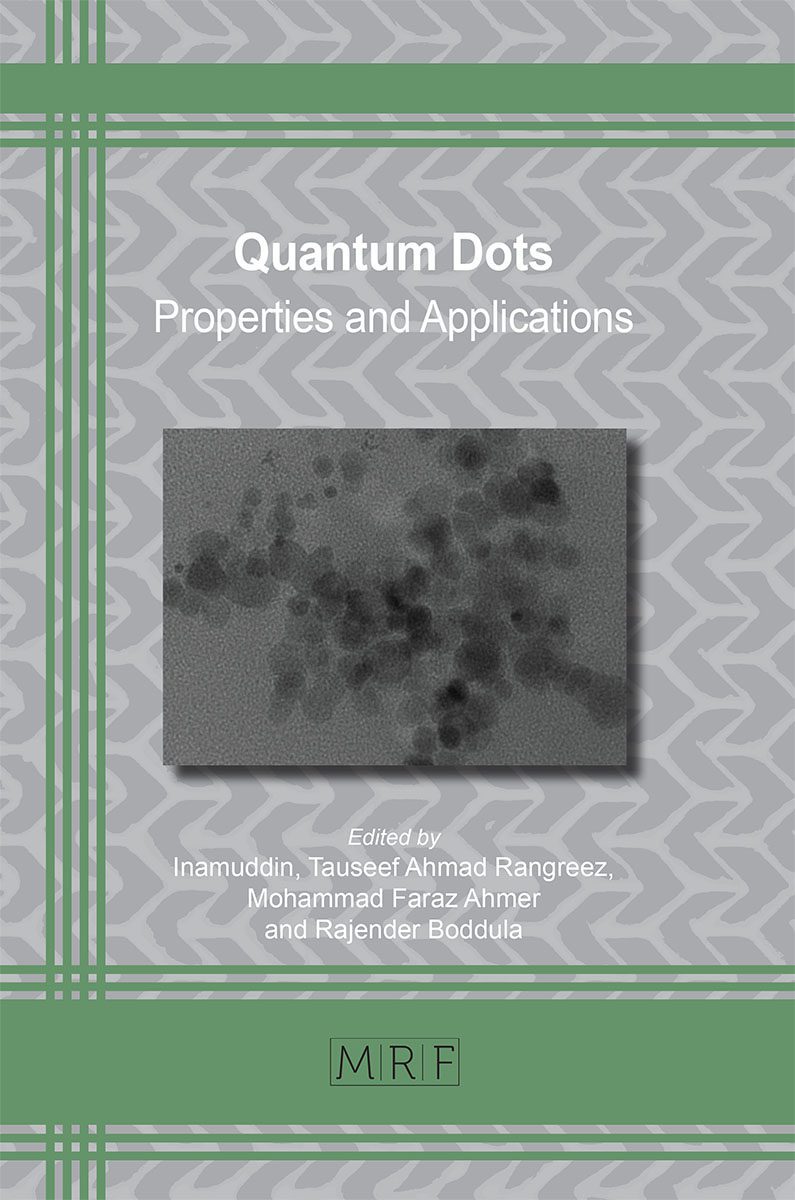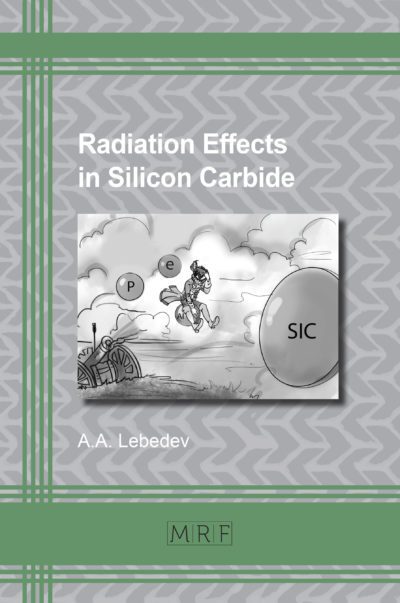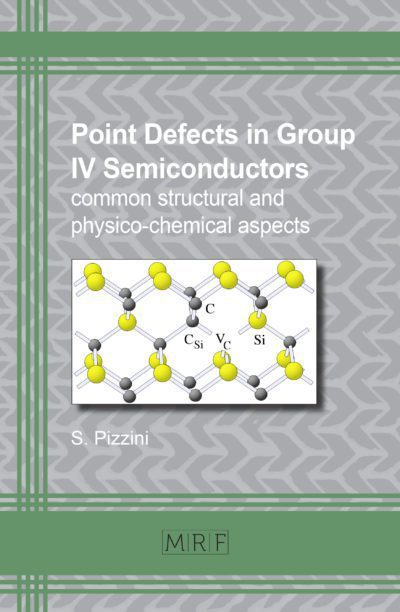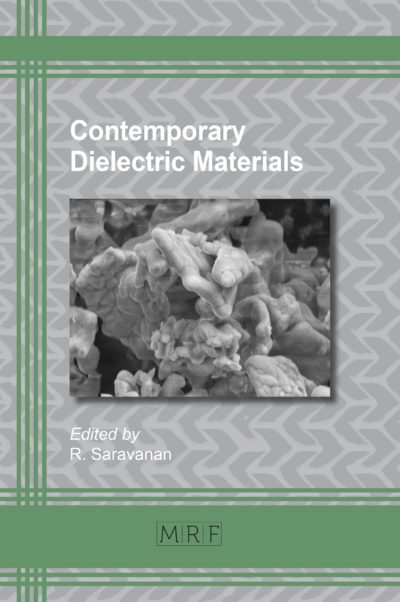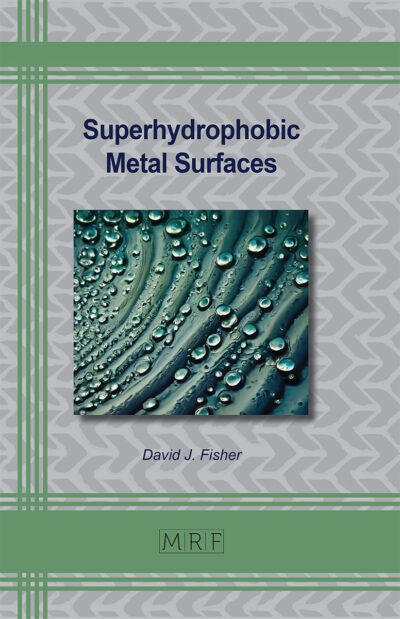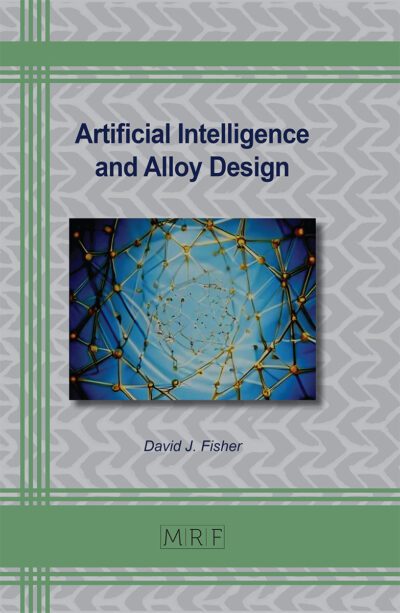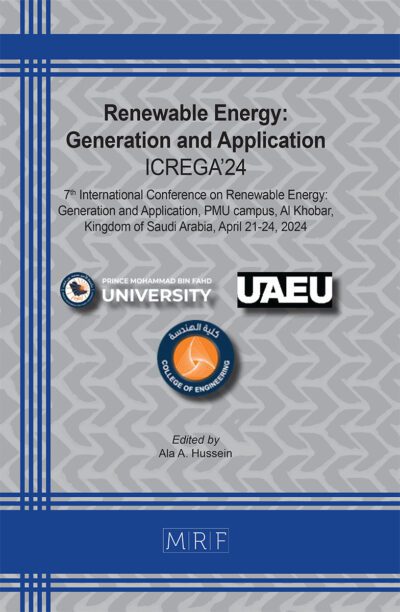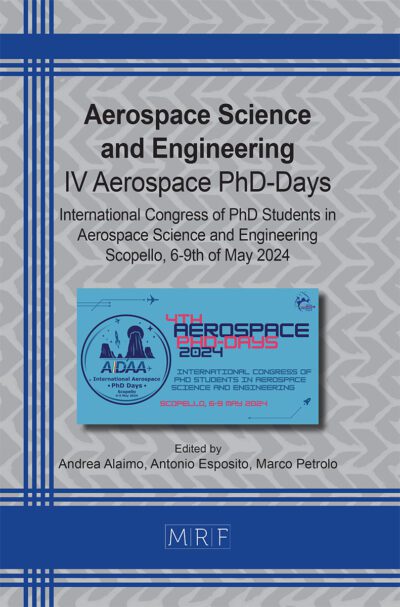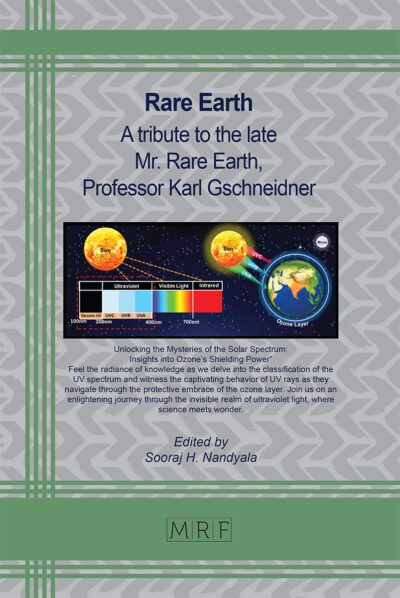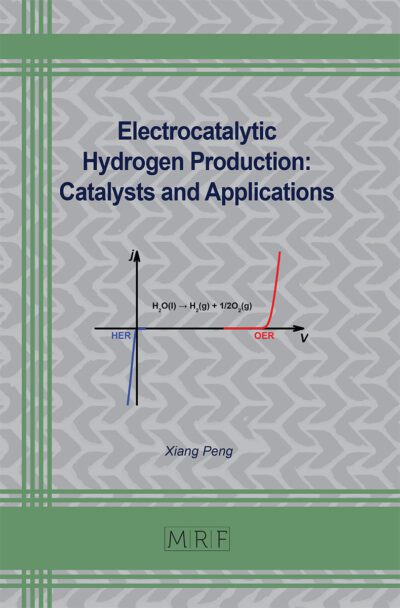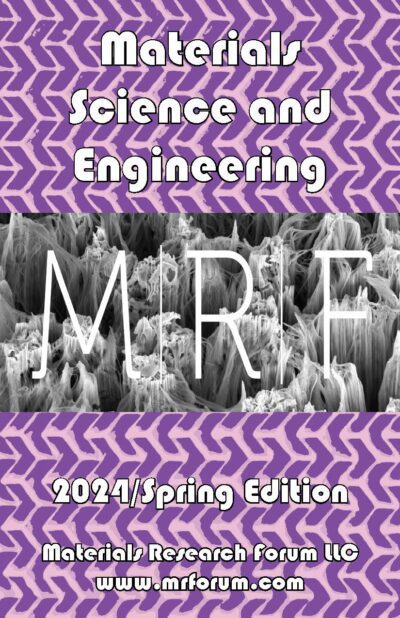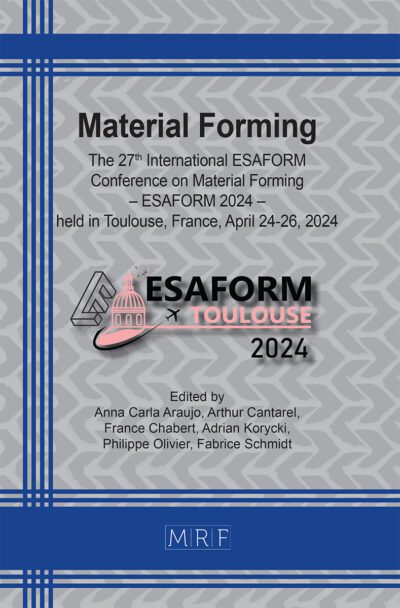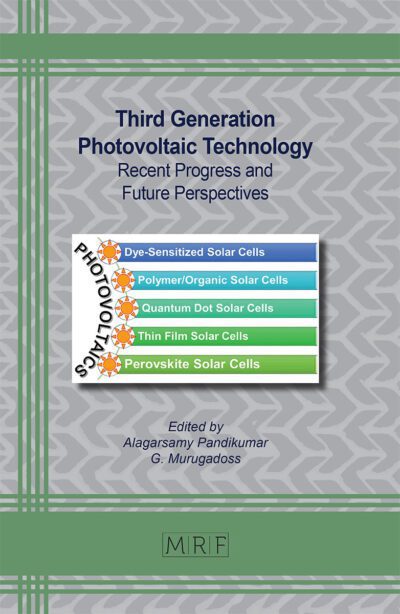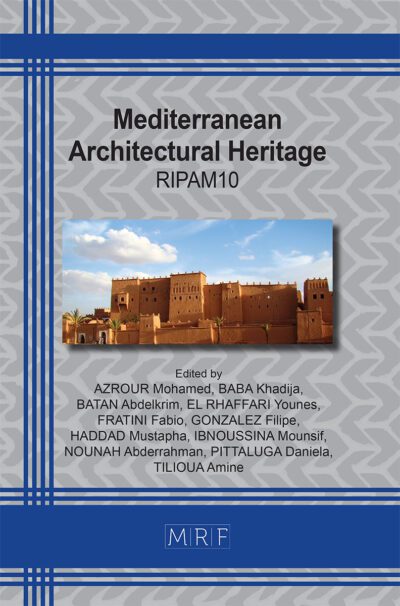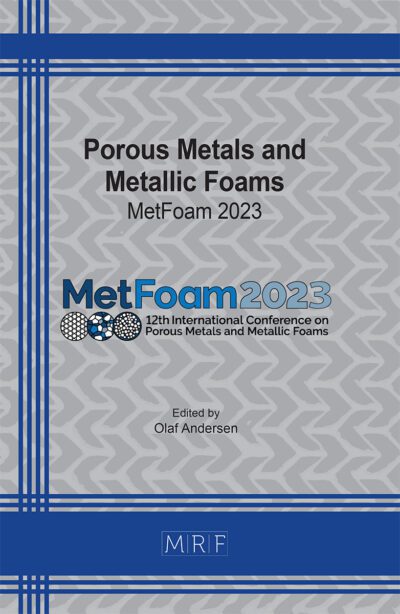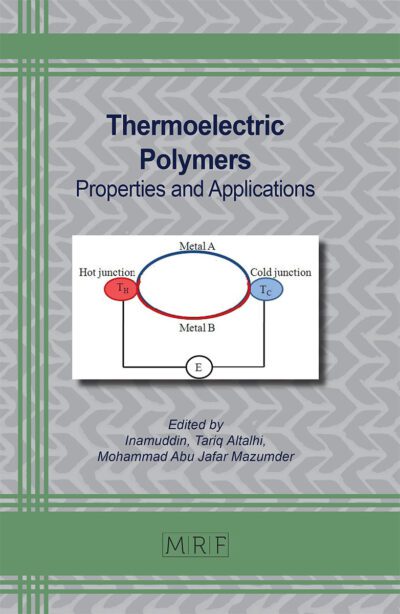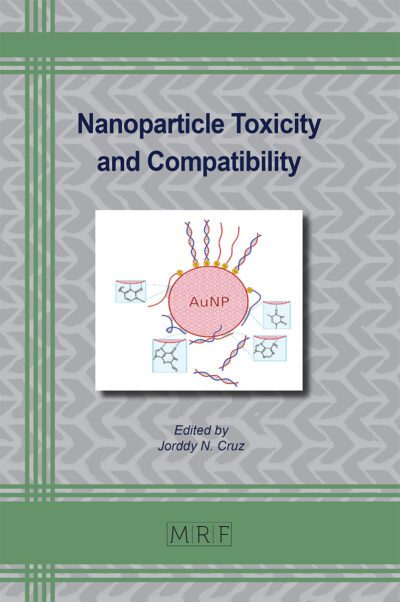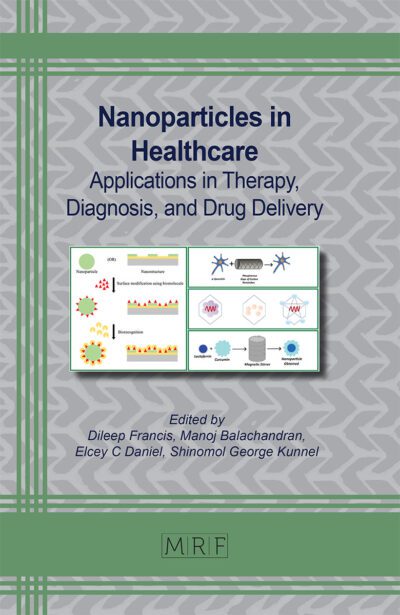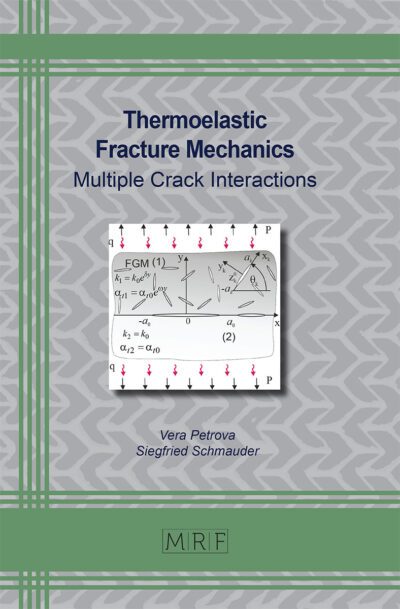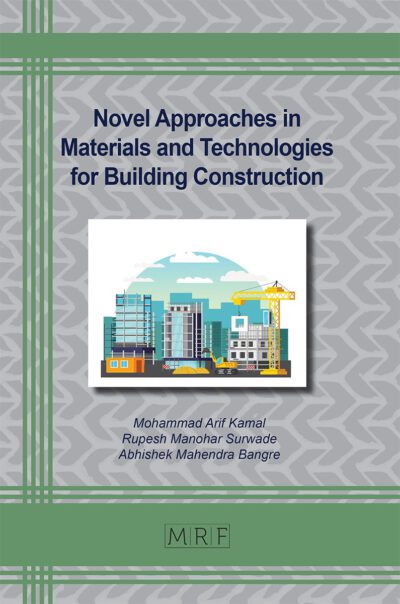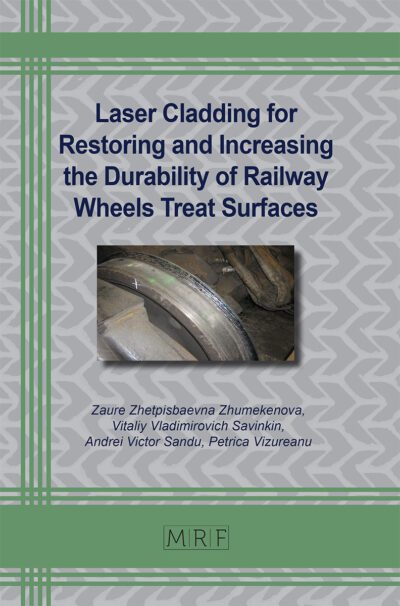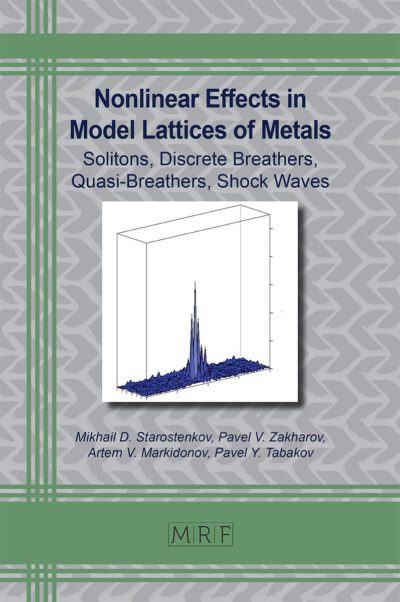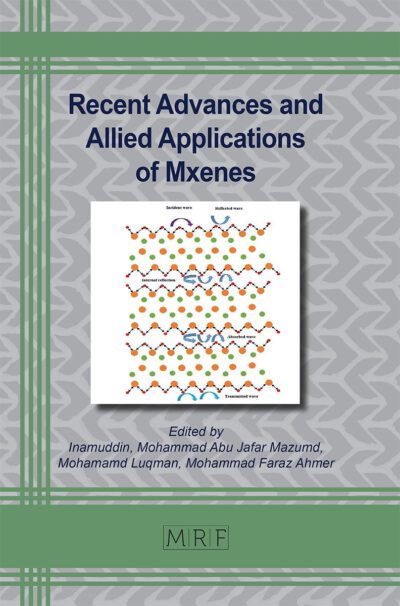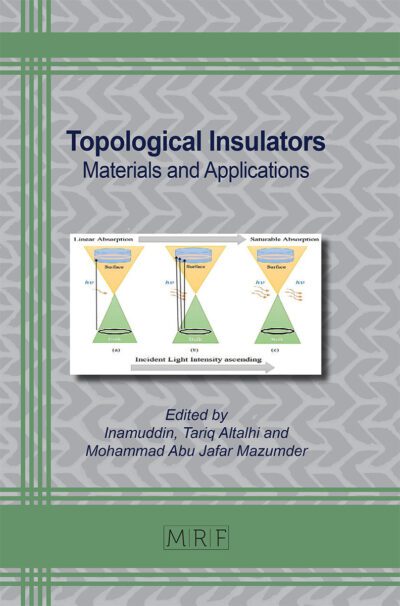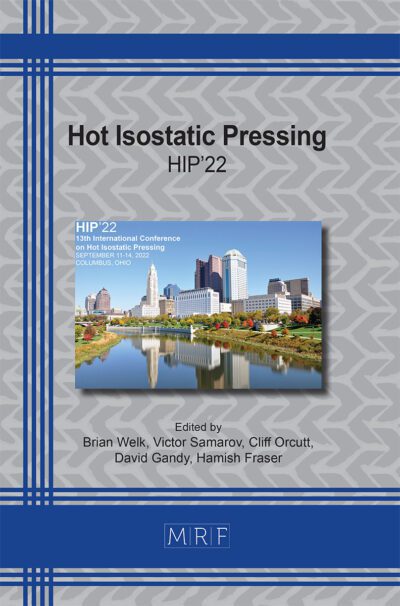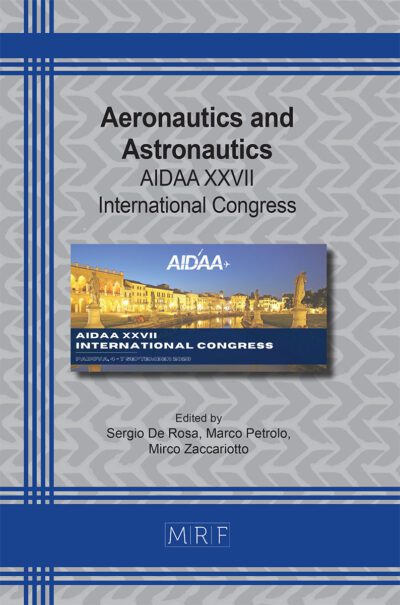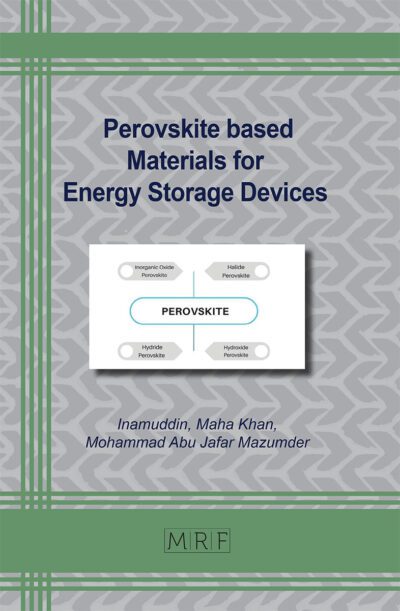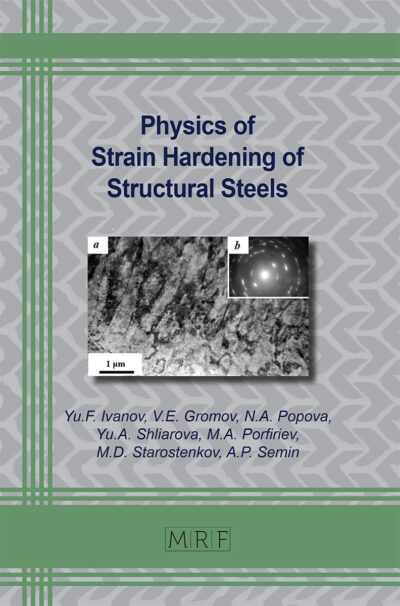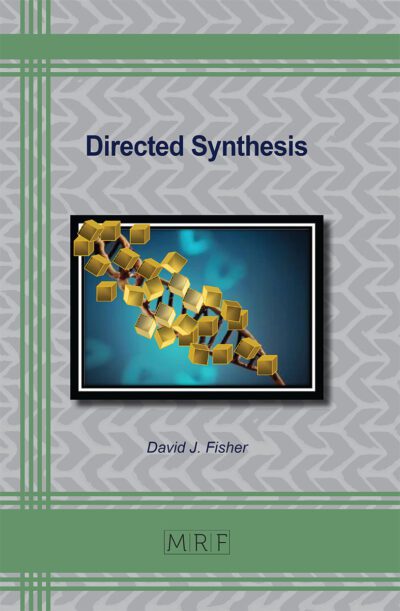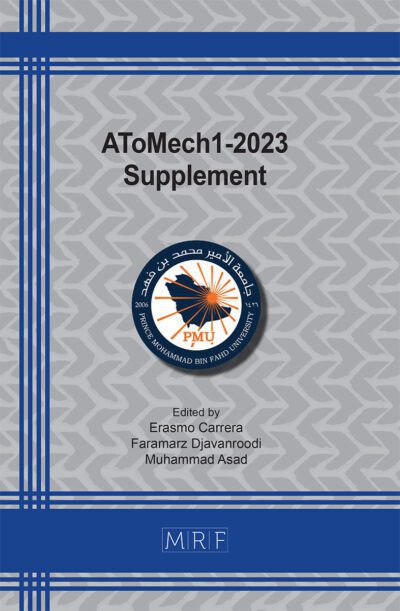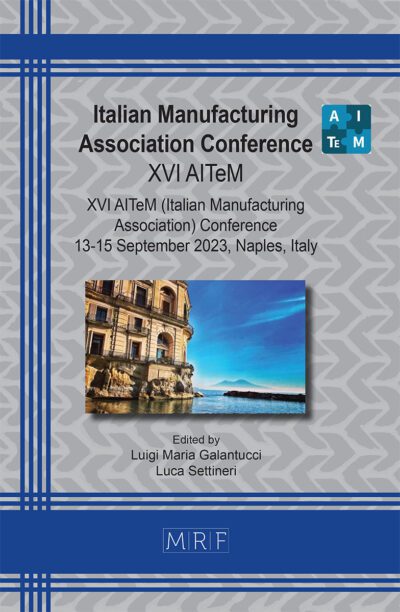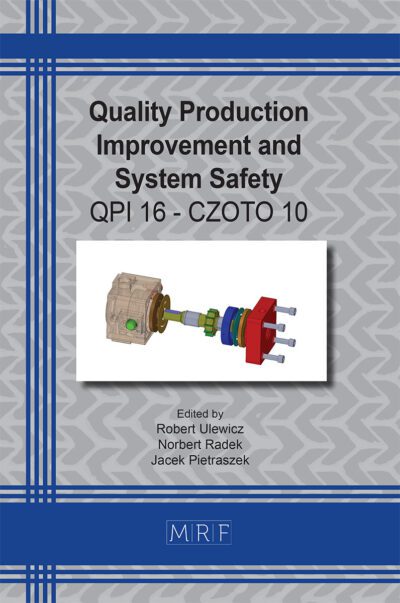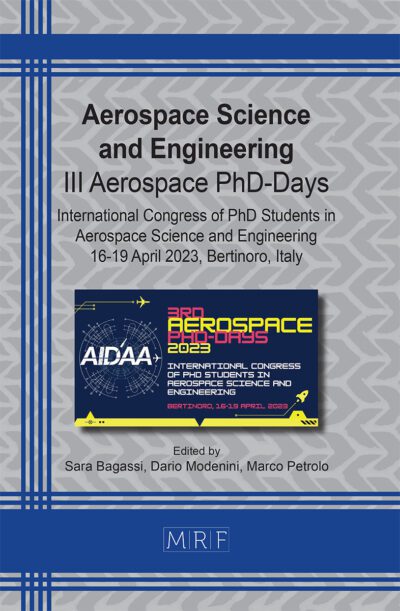Quantum Dots
Properties and Applications
Eds. Inamuddin, Tauseef Ahmad Rangreez, Mohammad Faraz Ahmer and Rajender Boddula
Materials Research Foundations Vol. 96
Publication Date 2021, 360 Pages
Print ISBN 978-1-64490-124-3 (release date April 2021)
ePDF ISBN 978-1-64490-125-0
DOI: 10.21741/9781644901250
The book provides a thorough survey of current research in quantum dots synthesis, properties, and applications. The unique properties of these new nanomaterials offer multifunctional applications in such fields as photovoltaics, light-emitting diodes, field-effect transistors, lasers, photodetectors, solar cells, biomedical diagnostics and quantum computing.
Keywords
Quantum Dots (QD), Photovoltaics, Light-emitting Diodes, Field-effect Transistors, Lasers, Photodetectors, Solar Cells, Biomedical Diagnostics, Quantum Computing, QD Synthesis, Carbon QDs, Graphene QDs, QD Sensors, Supercapacitors, Magnetic Quantum Dots, Cellular/Molecular Separation, Chromatographic Separation Column, Photostability, Luminescence of Carbon QDs, QD Materials for Water Treatment, Semiconductor Quantum Dots, QD Drug Delivery, Antibacterial Quantum Dots
flyer
Table of contents
Eco-Friendly Techniques to Synthesize Quantum Dots
Zeinab Fereshteh
Fabrication Techniques for Quantum Dots
Jyoti Patel, Bhawana Jain, Ajaya Kumar Singh
Green and One-Pot Synthesis of Mint Derived Carbon Quantum Dots for Metal Ion Sensing
Hasan ESKALEN, Serhan URUŞ, Şükrü ÖZĞAN, Beyhan TAHTA, Ali Burak SÜNBÜL
Antibacterial Quantum Dots
Jin-Chung Sin, Ying-Hui Chin, Sze-Mun Lam, HongHu Zeng, Hua Lin, Haixiang Li
Computational Theories Used in the Study of Quantum Dots
N. Mhlanga, T.A. Ntho
Application of Quantum Dots in Sensors
N. Mhlanga, P. Tetyana
Applications of Quantum Dots in Supercapacitors
Sanjeev Kumar Ujjain, Preety Ahuja
Quantum Dots Based Material for Drug Delivery Applications
Himani Tiwari, Neha Karki, Monika Matiyani, Gaurav Tatrari, Anand Ballabh Melkani, Nanda Gopal Sahoo
Quantum Dots based Materials for New Generation Supercapacitors Application: A Recent Overview
Gaurav Tatrari, Manoj Karakoti, Mayank Pathak, Anirban Dandapat, Tanmoy Rath, Nanda Gopal Sahoo
Role of Quantum Dots in Separation Processes
Neelam Verma, Rajni Sharma, Mohsen Asadnia
Quantum Dots Based Materials for Water Treatment
Chetna Tewari, Sumit Kumar, Neema Pandey, Sandeep Pandey, Nanda Gopal Sahoo
Semiconductor Quantum Dots
N.B. Singh, Richa Tomar
Quantum Dots: Properties and Applications
Amal I. Hassan, Hosam M. Saleh
Related Links
https://en.wikipedia.org/wiki/Quantum_dot
About the Editors
Dr. Inamuddin is working as Assistant Professor at the Department of Applied Chemistry, Aligarh Muslim University, Aligarh, India. He obtained Master of Science degree in Organic Chemistry from Chaudhary Charan Singh (CCS) University, Meerut, India, in 2002. He received his Master of Philosophy and Doctor of Philosophy degrees in Applied Chemistry from Aligarh Muslim University (AMU), India, in 2004 and 2007, respectively. He has extensive research experience in multidisciplinary fields of Analytical Chemistry, Materials Chemistry, and Electrochemistry and, more specifically, Renewable Energy and Environment. He has worked on different research projects as project fellow and senior research fellow funded by University Grants Commission (UGC), Government of India, and Council of Scientific and Industrial Research (CSIR), Government of India. He has received Fast Track Young Scientist Award from the Department of Science and Technology, India, to work in the area of bending actuators and artificial muscles. He has completed four major research projects sanctioned by University Grant Commission, Department of Science and Technology, Council of Scientific and Industrial Research, and Council of Science and Technology, India. He has published 177 research articles in international journals of repute and nineteen book chapters in knowledge-based book editions published by renowned international publishers. He has published 115 edited books with Springer (U.K.), Elsevier, Nova Science Publishers, Inc. (U.S.A.), CRC Press Taylor & Francis Asia Pacific, Trans Tech Publications Ltd. (Switzerland), IntechOpen Limited (U.K.), Wiley-Scrivener, (U.S.A.) and Materials Research Forum LLC (U.S.A). He is a member of various journals’ editorial boards. He is also serving as Associate Editor for journals (Environmental Chemistry Letter, Applied Water Science and Euro-Mediterranean Journal for Environmental Integration, Springer-Nature), Frontiers Section Editor (Current Analytical Chemistry, Bentham Science Publishers), Editorial Board Member (Scientific Reports-Nature), Editor (Eurasian Journal of Analytical Chemistry), and Review Editor (Frontiers in Chemistry, Frontiers, U.K.) He is also guest-editing various special thematic special issues to the journals of Elsevier, Bentham Science Publishers, and John Wiley & Sons, Inc. He has attended as well as chaired sessions in various international and national conferences. He has worked as a Postdoctoral Fellow, leading a research team at the Creative Research Initiative Center for Bio-Artificial Muscle, Hanyang University, South Korea, in the field of renewable energy, especially biofuel cells. He has also worked as a Postdoctoral Fellow at the Center of Research Excellence in Renewable Energy, King Fahd University of Petroleum and Minerals, Saudi Arabia, in the field of polymer electrolyte membrane fuel cells and computational fluid dynamics of polymer electrolyte membrane fuel cells. He is a life member of the Journal of the Indian Chemical Society. His research interest includes ion exchange materials, a sensor for heavy metal ions, biofuel cells, supercapacitors and bending actuators.
Dr. Tauseef Ahmad Rangreez is working as a postdoctoral fellow at National Institute of Technology, Srinagar, India. He completed his Ph.D in Applied Chemistry, from Aligarh Muslim University, Aligarh, India on the topic “Development of Nanostructure Organic-Inorganic Composite Materials based Sensors for Inorganic Pollutants”. He worked as a Project Fellow under the UGC Funded Research Project entitled “Development of Nanostructured Conductive Organic Inorganic Composite Materials based sensors Functionalities for Organic and Inorganic Pollutants”. He completed his Masters in Chemistry from Jamia Hamdard, New Delhi. He has published several research articles of international repute. He has edited various books with Springer and Materials Research Forum LLC, U.S.A. His research interest includes ion exchange chromatography, development of nanocomposite sensors for heavy metals and biosensors.
Dr. Mohammad Faraz Ahmer is presently working as Assistant Professor in the Department of Electrical Engineering, Mewat Engineering College, Nuh Haryana, India, since 2012 after working as Guest Faculty in University Polytechnic, Aligarh Muslim University Aligarh, India, during 2009-2011. He completed M.Tech. (2009) and Bachelor of Engineering (2007) degrees in Electrical Engineering from Aligarh Muslim University, Aligarh in the first division. He obtained a Ph.D. degree in 2016 on his thesis entitled “Studies on Electrochemical Capacitor Electrodes”. He has published six research papers in reputed scientific journals. He has edited two books with Materials Research Forum, U.S.A. His scientific interests include electrospun nano-composites and supercapacitors. He has presented his work at several conferences. He is actively engaged in searching of new methodologies involving the development of organic composite materials for energy storage systems.
Dr. Rajender Boddula is currently working with Chinese Academy of Sciences-President’s International Fellowship Initiative (CAS-PIFI) at National Center for Nanoscience and Technology (NCNST, Beijing). He obtained Master of Science in Organic Chemistry from Kakatiya University, Warangal, India, in 2008. He received his Doctor of Philosophy in Chemistry with the highest honours in 2014 for the work entitled “Synthesis and Characterization of Polyanilines for Supercapacitor and Catalytic Applications” at the CSIR-Indian Institute of Chemical Technology (CSIR-IICT) and Kakatiya University (India). Before joining National Center for Nanoscience and Technology (NCNST) as CAS-PIFI research fellow, China, worked as senior research associate and Postdoc at National Tsing-Hua University (NTHU, Taiwan) respectively in the fields of bio-fuel and CO2 reduction applications. His academic honors include University Grants Commission National Fellowship and many merit scholarships, study-abroad fellowships from Australian Endeavour Research Fellowship, and CAS-PIFI. He has published many scientific articles in international peer-reviewed journals and has authored around twenty book chapters, and he is also serving as an editorial board member and a referee for reputed international peer-reviewed journals. He has published edited books with Springer (UK), Elsevier, Materials Research Forum LLC (USA), Wiley-Scrivener, (U.S.A.) and CRC Press Taylor & Francis group. His specialized areas of research are energy conversion and storage, which include sustainable nanomaterials, graphene, polymer composites, heterogeneous catalysis for organic transformations, environmental remediation technologies, photoelectrochemical water-splitting devices, biofuel cells, batteries and supercapacitors.

